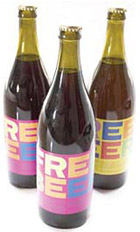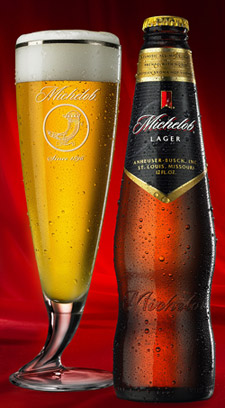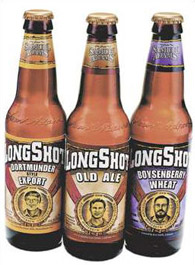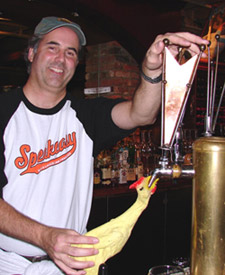 You are correct if you’ve figured out that a project to create “open source” beer doesn’t mean you end up drinking beer that you get for free.
You are correct if you’ve figured out that a project to create “open source” beer doesn’t mean you end up drinking beer that you get for free.
The idea of open source beer has been around as something of a joke since 1998, but students in Denmark have taken it a step further and begun a Free Beer project.
Sunday’s Boston Globe (free registration) offered the best explanation we’ve seen of the philosophy behind open source software and how the concept might be extended to other areas – such as the production of beer.
“Free software” began in the early 1980s when software developers first started asserting intellectual property rights over their works. The problem wasn’t so much that developers were making money off software, but rather that, by asserting these rights, they were no longer allowing the free and informal sharing of code. The free software movement’s objection, which was largely cast in moral terms, was essentially that while charging money for software was fine — everyone has to eat — it is not right to prevent others from using, studying, distributing, or improving on it.
The concept, and practices, of open source sprung from this.
Although the Free Beer project is fun – don’t you smile just saying the words? – brewers have been sharing information about how to brew better beer pretty much since they first learned how to make it.

 More on
More on  The three winning brews from the 2006 Samuel Adams American Homebrew Contest are now available nationally in the Samuel Adams LongShot mix six-pack. The homebrews, which include an Old Ale by Don Oliver of California and a Dortmunder Export brewed by Bruce Stott from Massachusetts, were chosen from more than 1,500 consumer entries. Rounding out the variety pack is a Boysenberry Wheat, submitted by Samuel Adams employee winner Ken Smith from Colorado.
The three winning brews from the 2006 Samuel Adams American Homebrew Contest are now available nationally in the Samuel Adams LongShot mix six-pack. The homebrews, which include an Old Ale by Don Oliver of California and a Dortmunder Export brewed by Bruce Stott from Massachusetts, were chosen from more than 1,500 consumer entries. Rounding out the variety pack is a Boysenberry Wheat, submitted by Samuel Adams employee winner Ken Smith from Colorado.  Wynkoop Brewing’s judging panel has picked the three finalists for the brewpub’s 2007 Beerdrinker of the Year award. They’ll duke it out Feb. 24 at 2 p.m. in the finals in Wynkoop,s Denver brewpub. They are:
Wynkoop Brewing’s judging panel has picked the three finalists for the brewpub’s 2007 Beerdrinker of the Year award. They’ll duke it out Feb. 24 at 2 p.m. in the finals in Wynkoop,s Denver brewpub. They are: